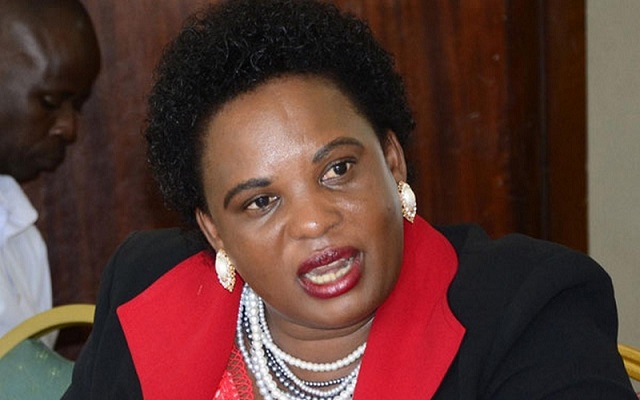
Kampala, Uganda | THE INDEPENDENT | Many women in Uganda are still barred from participating in politics while those who do are held back and cannot compete directly without affirmative action. This according to Betty Amongi, the Minister in charge of Kampala and Metropolitan Affairs can be traced to cultures that treat women as minions.
Her comment follows stagnation in the number of women competing or even voted as directly-elected Members of Parliament. According to results from last week’s parliamentary election, 21 women are joining parliament as directly elected members this term, an increase of only one slot from the 20 members in the 10th parliament.
The 11th parliament will have a total of 356 directly elected MPs, up from 304 in the current parliament. The rest of the women are joining parliament because of affirmative action, representing districts and cities. Amongi says that the numbers are frustrating for a country that has invested so much time and effort in empowering women and preaching the emancipation gospel.
Amongi asserts that patriarchy is still entrenched in the communities and most women are discouraged by family and clan members from contesting for political seats. Similarly, even when they contest in the areas they have been married to, they face the same kind of discrimination.
The new faces among female directly elected members in parliament include, Shartsi Musherure Kuteesa, the new Mawogola North MP from Sembabule district, Hanifa Kawooya Bangirana, the current Sembabule woman MP who is now MP-elect for Mawogola West and Namugga Gorreth, the MP-elect for Mawogola South.
The others are Bukomansimbi North MP Nandagire Christine, Naume Kabasharira, the MP elect for Rushenyi county, Dr Elisa Rutahigwa, the Rukungiri Municipality MP-elect, Agaba Aisha Black – Bugangaizi East, Okot Santa – Aruu North, Akello Christine – Erute North, Sauda Kayanga Watonola – Kamuli Municipality, Lematia Ruth Molly – Maracha East, Lamwaka Margaret – Chua East, and Dr Akullo Aabuka – Lamwo County.
They will join the few women who retained their slots among them; Jalia Bintu – Buruli County, Nambooze Betty Bakireke – Mukono Municipality, Amongi Betty – Oyam South, Naume Kibaju – Sheema North, Rwakoojo Robinah – Gomba West, Margaret Muhanga – the current Burahya MP and now MP-elect for Fort Portal City North Division and Persis Namuganza – Bukono County.
A total of 10 incumbent directly elected Female MPs lost their seats to men. Amongi says that the contests are very competitive and require extensive finances, which are far above what the women can and cannot do. She also notes that men will employ all sorts of tactics including violence to defeat the female contestants.
Henry Kasacca, a political analyst says that very few women go to parliament on directly elected tickets because there is no mainstreaming of women participation within political parties, yet still, there is a limited number of women capable of securing party flags. This therefore means that party financing cannot be extended to them. He notes that even within the parties, women are frowned upon eyeing directly elected MP slots.
*****
URN
 The Independent Uganda: You get the Truth we Pay the Price
The Independent Uganda: You get the Truth we Pay the Price




How did they get to the training station